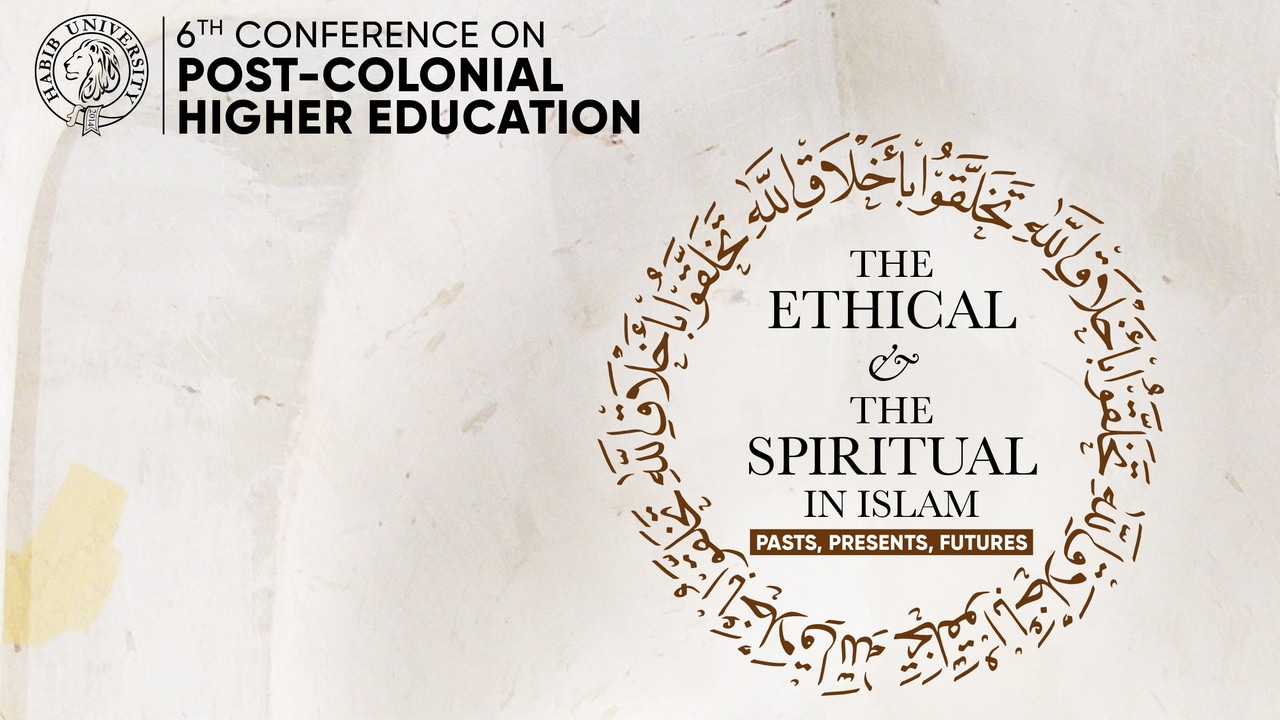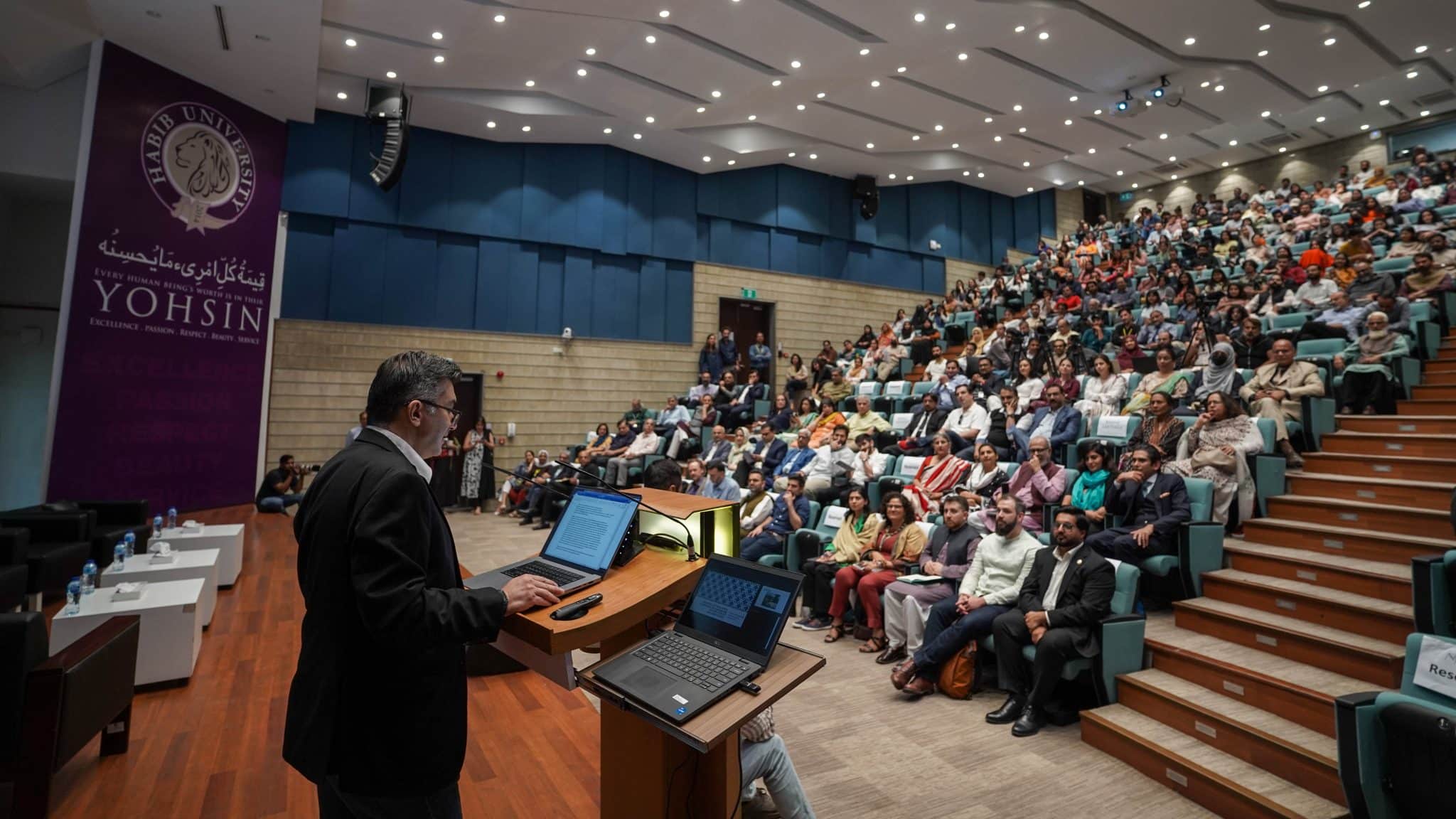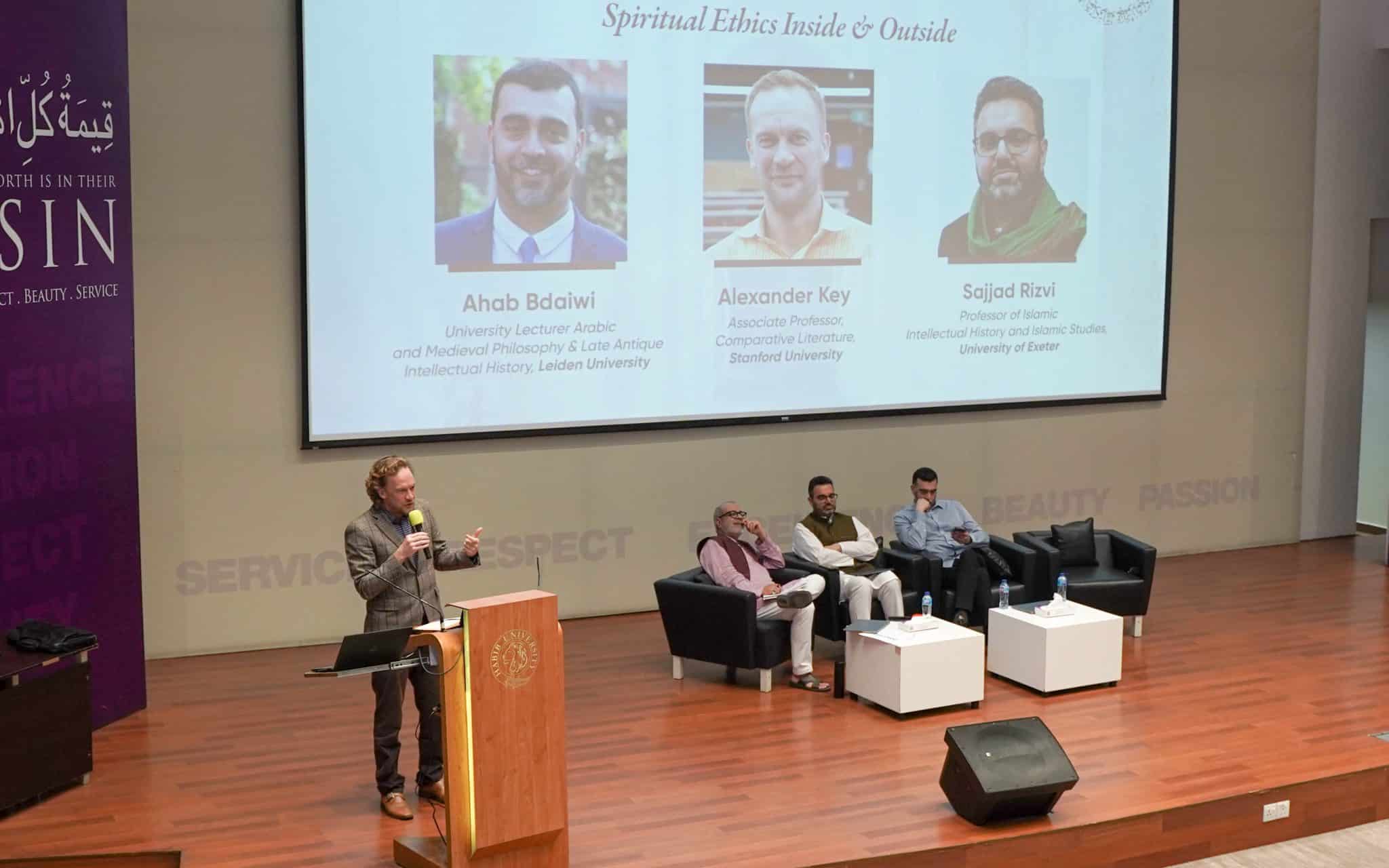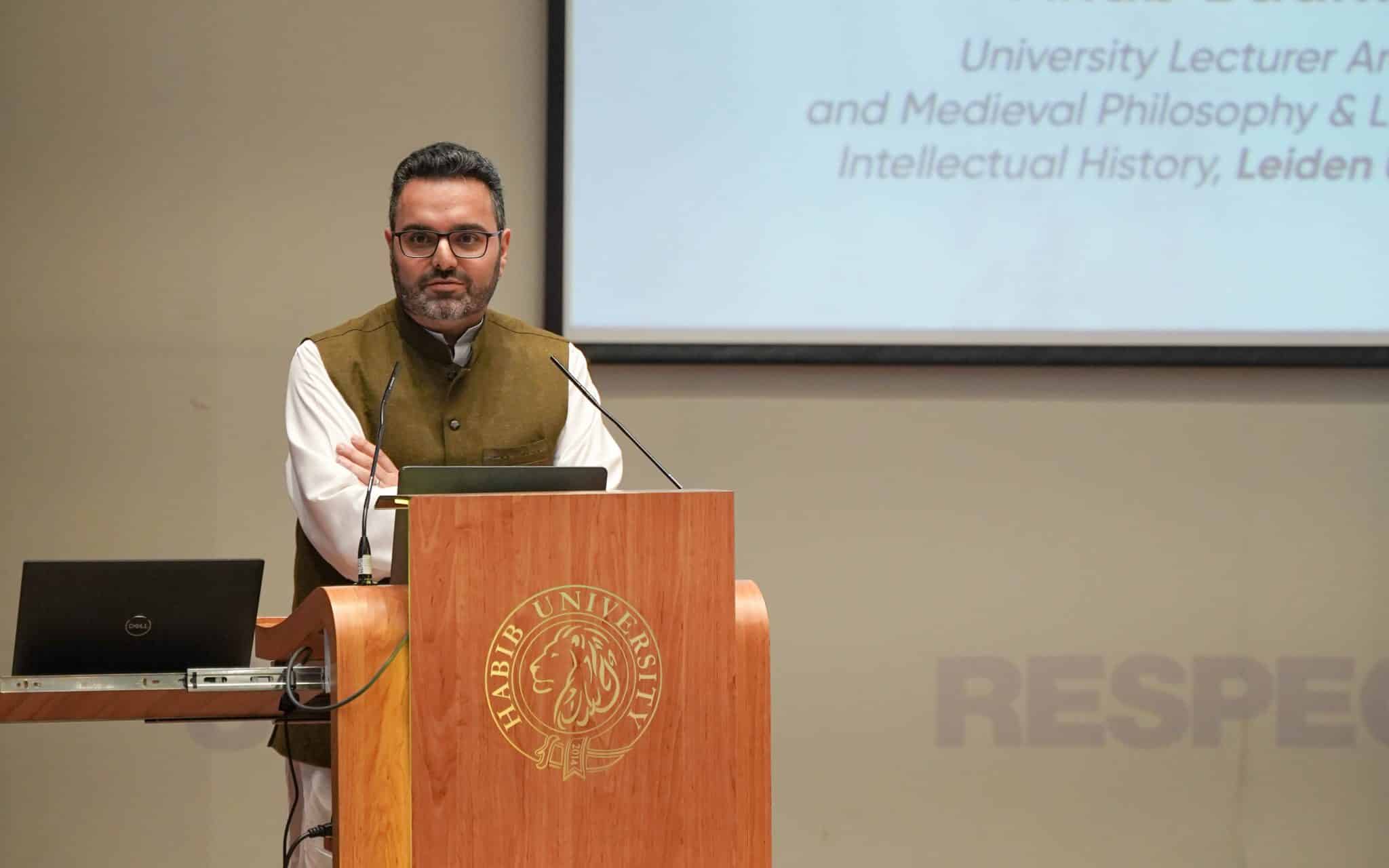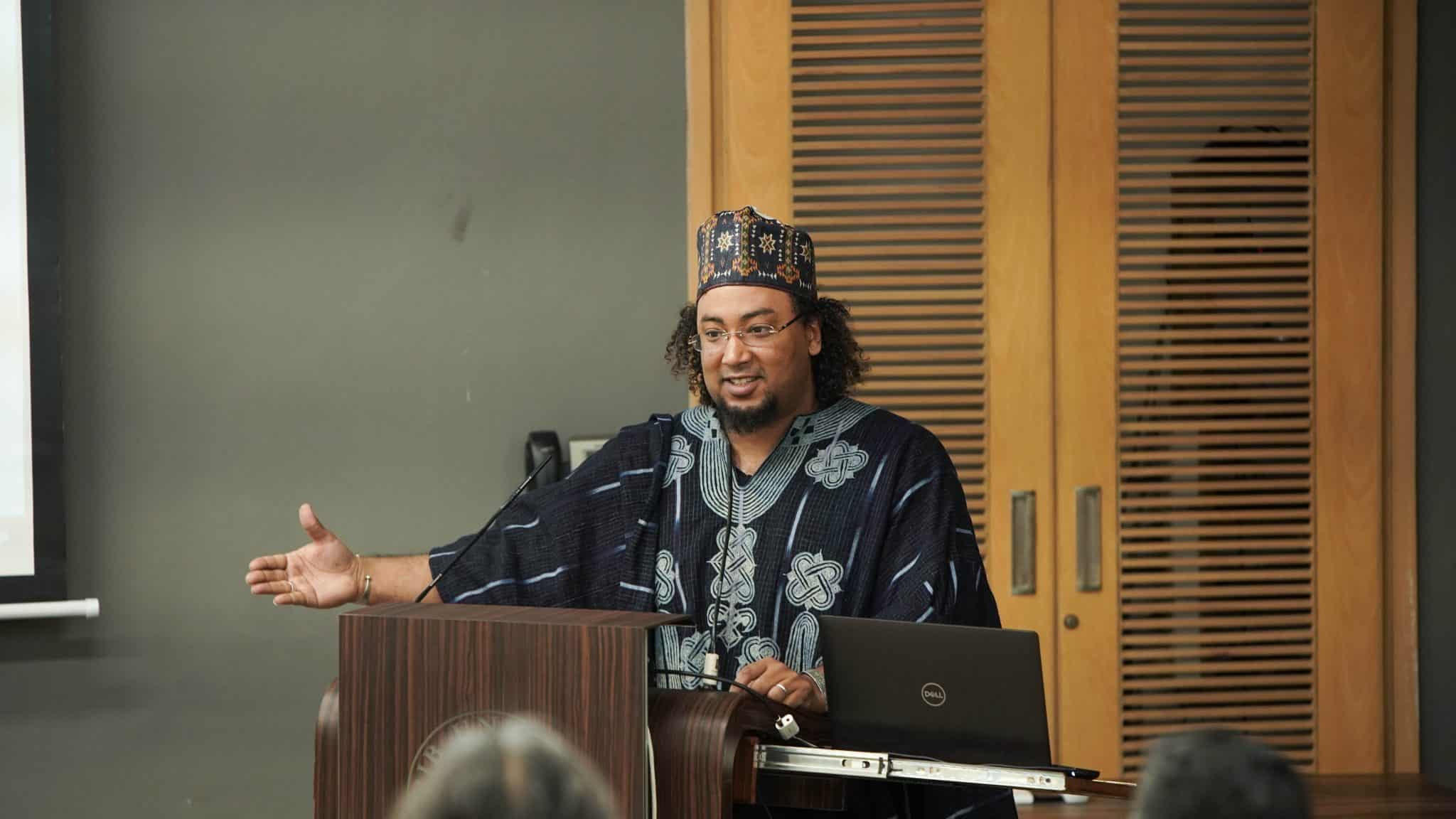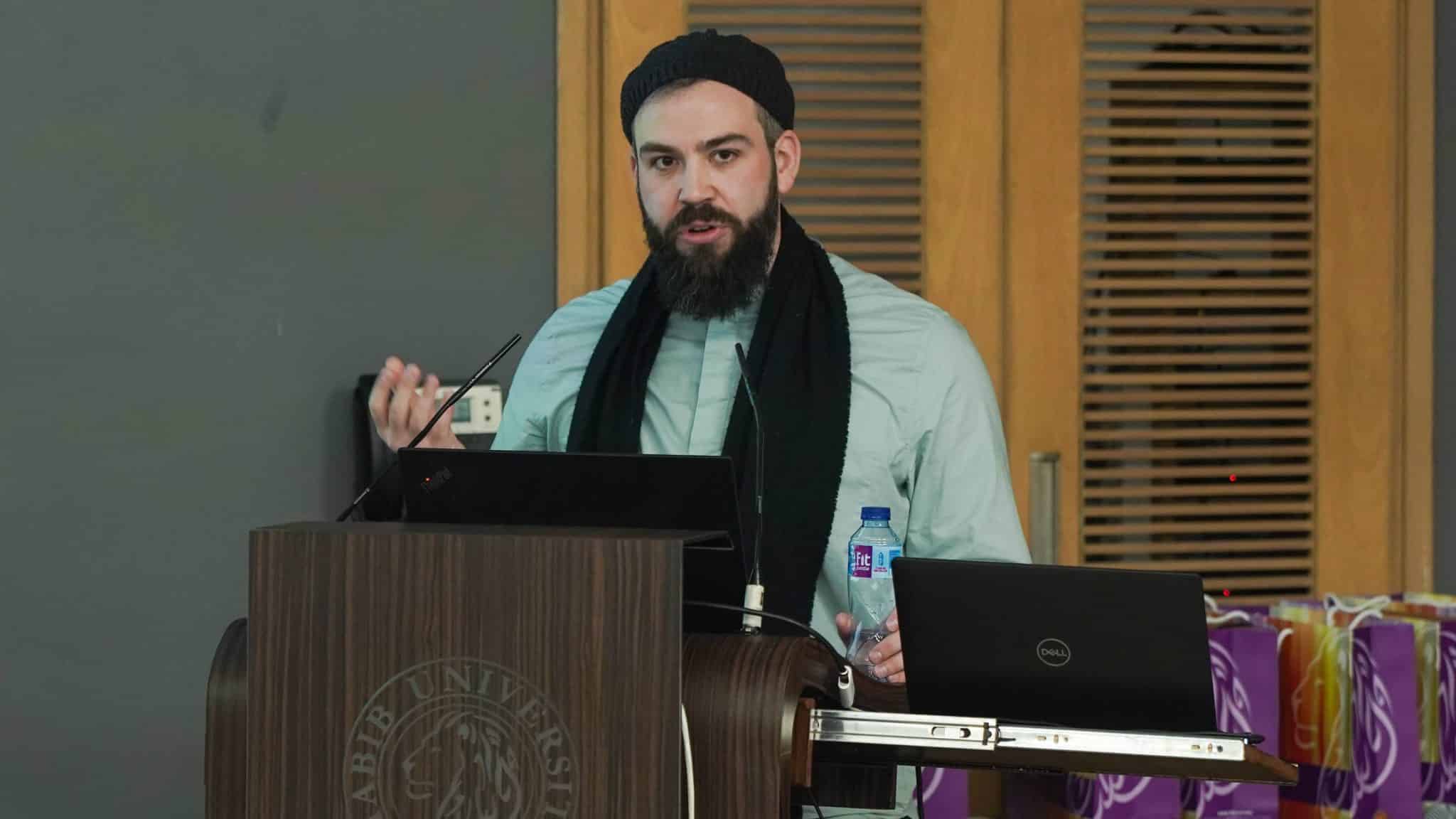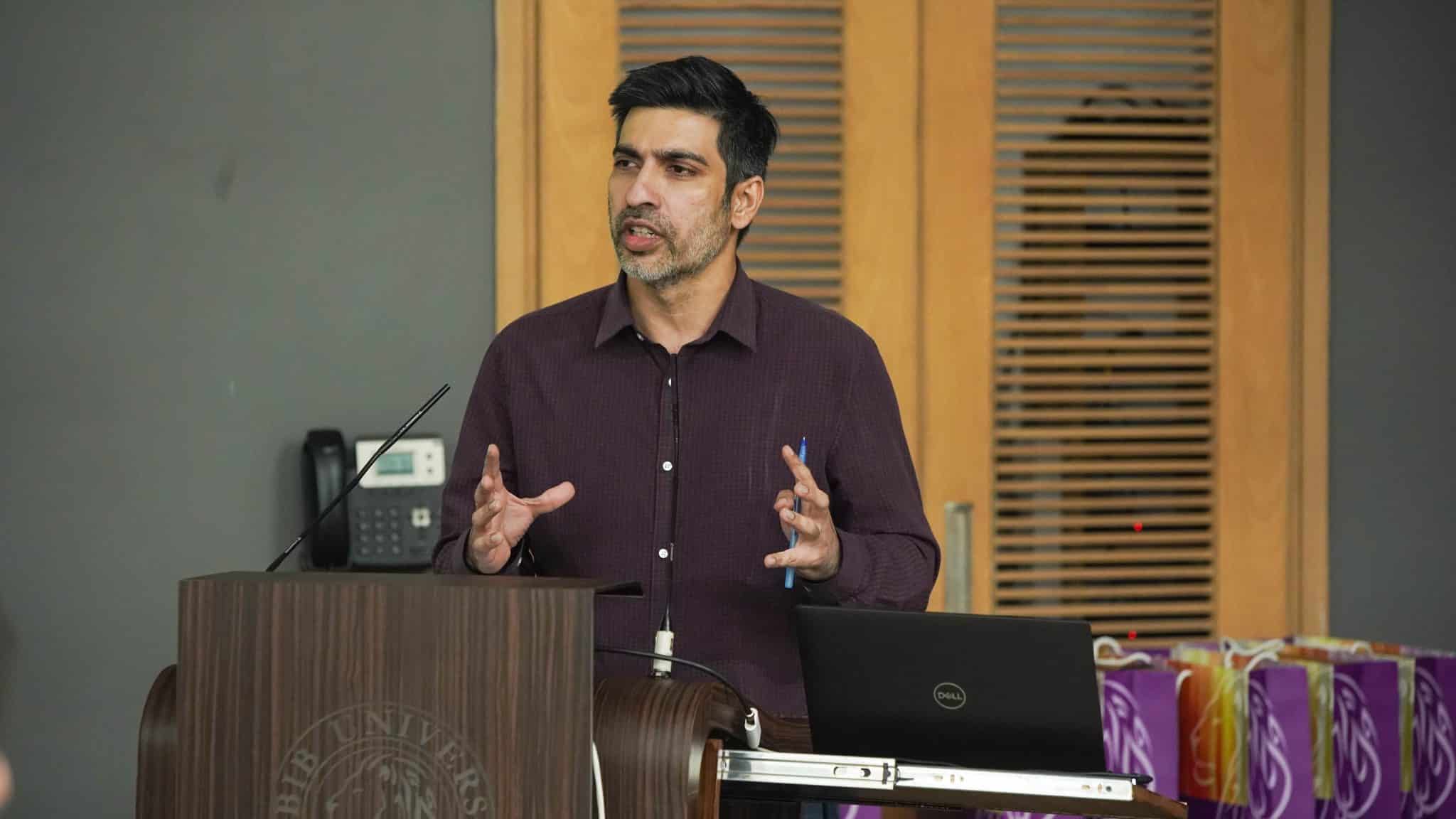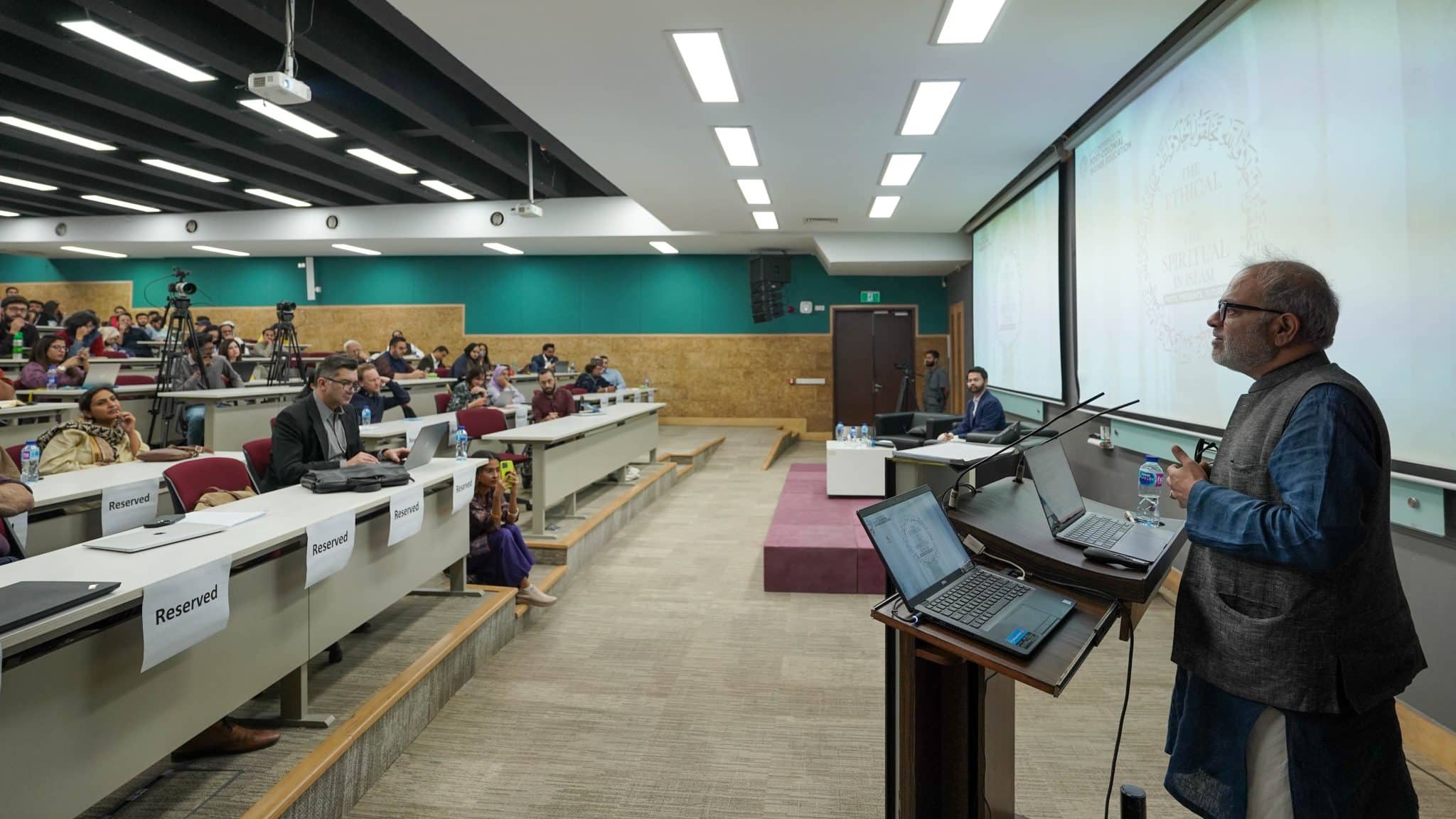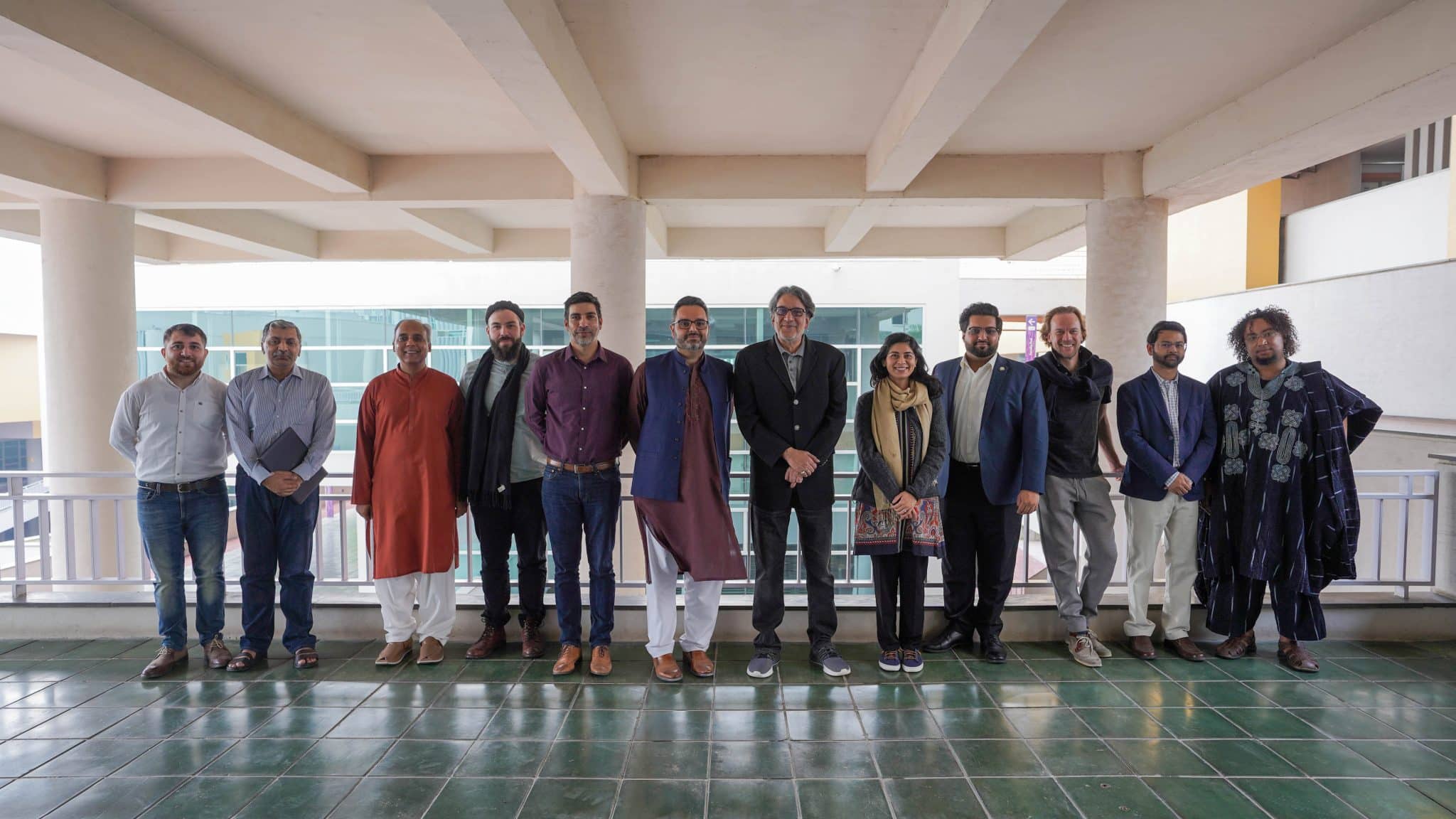Habib University’s flagship Postcolonial Higher Education Conference (PHEC) commenced on November 24, 2023, and continued on November 25, 2023 with distinguished speakers and post-colonial reparative thinkers shedding light on essential conceptual and practical linkages between the ethical and spiritual dimensions in Islamic traditions in their past, present, and future articulations.
PHEC is a decade-old practice at Habib University in line with the University’s mission of shaping reparative futures to contribute towards the enrichment of scholarly conversations over decolonization. Welcoming esteemed guests to its 6th iteration on Friday, Dr. Najeeb Jan, Associate Professor of Comparative Humanities at Habib University said: “Ontology is the question of reality. In order to see visibility, light must withdraw and abandon itself.”
In his introductory remarks, Dr. Nauman Naqvi – Conference Chair and Associate Professor of Comparative Humanities at Habib University, introduced this year’s conference theme titled “The Ethical and the Spiritual in Islam: Pasts, Presents and Futures,” sharing how the conference is a historical, philosophical and socio-political examination of the split between the conceptual and practical in religion, ethics and spirituality. In further exploring the significance of the conversations this conference aims to promote, he said, “‘Creating’ itself is an ethical act. One’s spiritual stature is identical to one’s ethical stature.”
The conference began with a keynote session on ‘Bridging faith and world (din and dunya): Examining the Reparative Possibilities of Ordinary Ethics,’ where renowned scholar of gender, Islam, and youth studies Dr. Shenila Khoja-Moolji suggested, “Instead of divisions, we should focus on connectedness, alliance, and plurality in Islam.”
The second half of the conference revolved around a panel discussion, “Spiritual Ethics Inside & Outside,” providing each panelist a platform to discuss their respective research papers. While discussing his paper, ‘The Sage of Medina: The Ethics of Jaʿfar al-Ṣādiq,’ Dr. Ahab Bdaiwi, a Lecturer at Leiden University, argued, “The worldview of Imam Jafar Al Sadiq and his wisdom of writing down Tafsir, Hadith, Legal writings, and Percepts depicts the importance of preserving oral and written spiritual history, and the transmission of knowledge.”
Dr. Alexander Key, Associate Professor of Arabic and Comparative Literature at Stanford University, presented his paper titled ‘What Price Ethics? Al-Tanukhi on generosity, politics, and deliverance in 10th-century Iraq’ and posed the question: “Is generosity merely a means of gaining credit or respect, or is it an act that connects us with God?” Dr. Alexander guided the audience through various stories to delve deeper into the spiritual ethics, both inside and outside.
Meanwhile, Dr. Sajjad Rizvi, Professor of Islamic Intellectual History at the University of Exeter, in his paper ‘The Ethics of Divine Friendship from the Wisdom of Mulla Sadra to the Praxis of Allameh Tabatabai,’ emphasized, “One of the best ways of finding roots of ethics in Islamic history is commentary.” Professor Rizvi’s work illuminated the concept of divine friendship by drawing from the wisdom of exemplary historical figures such as Mulla Sadra and Allameh Tabatabai.
The second day of Habib University’s 6th Post-colonial Higher Education Conference began with a keynote address by Dr Oludamini Ogunnaike, Associate Professor of African Religious Thought and Democracy at the University of Virginia.
Dr Najeeb Jan, Master of Ceremony and Associate Professor of Comparative Humanities, Habib University, took the stage to welcome Dr Ogunnaike and introduce him and his work to the audience. The award-winning author and scholar, Ogunnaike, delved into “The Perils and Imperatives of Decoloniality in Islamic Temporalities.”
During his keynote he wondered “how can begin to heal the ruptures of coloniality?” and said with great confidence that “…if Habib [University] and the project you [Habib University] have here is able to do this it will be a tremendous gift for the people of Pakistan and beyond.”
The keynote was followed by a panel on the theme “The Politics of Spiritual Ethicality” which featured Dr. Aaron Eldridge and Dr. Arsalan Khan.
“Ambivalence is the cause of the alternation of our history between construction and destruction,” elaborated Dr Eldridge, as he presented his paper titled ‘Toward an Asecular Theory of Dār al-Islām’.
Arsalan Khan discussed the case of how “…moral chaos is manifested in all manner of problems but mostly as conflict among Muslims whether within families, between ethnic communities and between Muslim nations,” in his presentation on “Islamic Piety as Sovereign Transcendence in the Tablighi Jamaat in Pakistan.”
The second panel of the day featured Dr. Muhammad Faruque, Assistant Professor, Inayat and Ishrat Malik Assistant Professor and Taft Center Fellow at the University of Cincinnati and Dr. Nauman Naqvi, Associate Professor, Comparative Humanities at Habib University speaking on the theme “Ethico-Spiritual Reorientations in an Age of Extreme Nihilism.”
“There is a profound connection between mental illness and the modern self,” said Muhammad U. Faruque, whilst exploring the widespread disenchantment with modern life within the “burnout society” during his presentation on “The Burnout Society: Healing Fragmentation through Islamic Spirituality.”
Dr Nauman Naqvi gave the last presentation of the day on “Hikma: Reorienting Islamic Studies Towards Love, Beauty, Light & Limit” in which he expanded on our existence where “our experience of our time is very plastic… [and] time is malleable.” The panels ended with a discussion between panelists and discussants from Habib University faculty including Shah Jamal Alam, Associate Professor of Computer Science and Xiaoxi Zhang, Global Fellow, Comparative Humanities where they engaged with audience and elaborated on key aspects of their work.
The sixth Postcolonial Higher Education Conference at Habib University explored, examined, and interpreted the fundamental connections between the spiritual and ethical aspects of Islamic traditions, ranging from modern reconfigurations to late antique and mediaeval articulations, and imagining future reparative opportunities for theory and practice.
